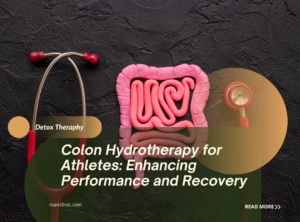
Are Enemas Safe? Types, Benefits, and Concerns of Enemas

Enemas have been used for ages to cleanse the colon and treat constipation. Despite their long history, enemas’ safety and usefulness continue to be disputed by medical specialists. This blog will go over the many forms of enemas, their possible advantages, and the problems involved with their usage in order to offer a thorough overview of this technique.
Types of Enemas
Enemas can be classified into several types based on their purpose and the solution used. Here are some of the most common types
- Cleansing Enemas: These are the most common type of enemas and are used to cleanse the colon before a medical procedure or to relieve constipation. They typically use saline or a soap solution.
- Retention Enemas: These enemas are intended to be held in the body for an extended period, usually around 15-30 minutes. They often contain oil or medication to soften stool or deliver drugs directly to the colon.
- Herbal and Coffee Enemas: These alternative enemas use herbal extracts or coffee solutions. Proponents claim they can detoxify the liver and improve overall health, though scientific evidence is limited.
- Barium Enemas: These are used in medical imaging to help visualise the colon during X-rays. A barium sulphate solution is introduced into the colon to highlight its structure.
Benefits of Enemas
Enemas can offer several potential benefits, particularly in specific medical and health-related contexts
One of the primary uses of enemas is to relieve constipation. By introducing fluid into the colon, enemas can soften stool and stimulate bowel movements, providing quick relief.
Enemas are often used to cleanse the colon before medical procedures such as colonoscopies. A clean colon is essential for accurate imaging and diagnosis.
Some people use enemas as part of detoxification regimens, believing that they help remove toxins from the body. While the scientific basis for these claims is limited, some individuals report feeling rejuvenated after the procedure.
Retention enemas can be used to deliver medications directly to the colon, which can be beneficial for conditions like inflammatory bowel disease (IBD) or infections that require localised treatment.
Concerns and Risks of Enemas
While enemas can be beneficial, there are several concerns and risks associated with their use that need to be considered
Frequent use of enemas, particularly those containing saline, can lead to electrolyte imbalances. This can cause dehydration, muscle cramps, and other health issues.
There is a risk of introducing bacteria into the colon, which can lead to infections. Ensuring that equipment is sterile and following proper procedures is crucial to minimise this risk.
Improper administration of enemas can cause physical damage to the rectum or colon. This includes perforation, which is a serious medical emergency.
Over-reliance on enemas for bowel movements can lead to dependency, where the bowel becomes less able to function naturally. This can create a cycle of needing more frequent enemas.
Regular use of enemas can disrupt the natural balance of gut flora, which is essential for healthy digestion and immune function. This disruption can lead to digestive issues and other health problems.
Best Practices for Safe Use of Enemas
To minimise risks and ensure the safe use of enemas, it is important to follow best practices
Before starting any enema regimen, it is crucial to consult with a healthcare provider. They can provide guidance on the appropriate type and frequency of enemas based on your health needs.
Always use sterile equipment to prevent infections. Disposable enema kits are widely available and can help ensure hygiene.
Stick to the instructions provided with the enema kit or those given by your healthcare provider. Improper use can lead to complications.
Ensure enough hydration before and after using an enema to prevent electrolyte imbalances. Drinking plenty of water can help relieve this risk.
Pay attention to how your body responds to enemas. If you experience pain, bleeding, or any other unusual symptoms, seek medical attention immediately.
Enemas can be a useful tool for treating constipation, preparing for medical procedures, and delivering medication. However, they are not without risks. Understanding the different types of enemas, their potential benefits, and the associated concerns is essential for making informed decisions about their use. Always consult with a healthcare professional before incorporating enemas into your health routine to ensure they are used safely and effectively. By following best practices and staying informed, you can minimise risks and maximise the benefits of enemas.
Recent Posts




At Inan, we believe in a whole-body approach to Healthcare. Focusing on the 6 pillars of health – Food, Exercise, Sleep, Mind, Detox and Nutrition, we leave no stone unturned in helping you to a holistic and rejuvenated tomorrow.
Quick Links
Home
About Us
Detox
Blog
Faq
Contact Us
Get in Touch
J73,G2,Ground floor, R.R.Residency,13th Main Road, Anna Nagar West, Chennai. -600040
Email : inanclinic@gmail.com

At Inan, we believe in a whole-body approach to Healthcare. Focusing on the 6 pillars of health – Food, Exercise, Sleep, Mind, Detox and Nutrition, we leave no stone unturned in helping you to a holistic and rejuvenated tomorrow.
Quick Links
Get in Touch
J73,G2,Ground floor, R.R.Residency,13th Main Road, Anna Nagar West, Chennai. -600040
Email : inanclinic@gmail.com
